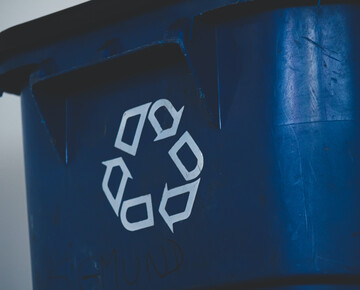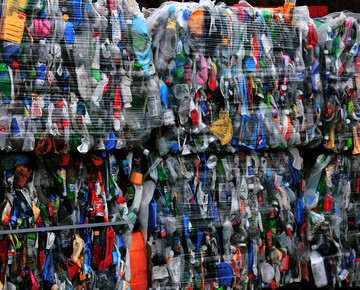Since 1 August 2024, the reporting of actual emissions has been mandatory for every CBAM good imported into the EU. Our article highlights the new requirements and responsibilities for companies that must submit CBAM reports. Find out how to comply with the new regulations and which steps are necessary for documentation and data collection.
Calculation of actual emissions
The EU Commission has clarified that the responsibility for the completeness and accuracy of the CBAM reports lies with the declaring parties. Since 1 August 2024, the reporting of actual emissions has been mandatory for every CBAM good imported into the EU. To comply with the CBAM reporting obligations since 1 August 2024 requires declarants to carefully identify and document actual emissions. It is crucial to make every reasonable effort to obtain this data and to document these efforts comprehensively in order to meet the requirements of the EU Commission and the national implementing authorities. (FAQ of the European Commission - status as at 8 August 2024).
The provisions of Article 4 CBAM Implementing Regulation 2023/1773 for the calculation of actual emissions remain in force and continue to apply. CBAM declarants are obliged to determine and report the actual emissions for each import of goods in accordance with the calculation methods set out in Article 4 I or II CBAM Implementing Regulation 2023/1773.
In accordance with legal requirements, the specific grey emissions associated with the goods produced in a plant can be determined using one of the following methods:
- Determination of emissions from material flows using activity data from measurement systems and calculation factors from laboratory analyses or standard values.
- Determination of emissions from an emission source by continuously measuring the concentration of the relevant greenhouse gases in the exhaust gas stream and the exhaust gas stream as such.
Deviating regulations for calculating emissions until 31 December 2024
By way of derogation from the methods above, until 31 December 2024, specific grey emissions may be calculated using one of the following monitoring and reporting methods, provided that they result in similar coverage and accuracy of emissions data:
- CO2 pricing system at the plant location;
- Binding emission monitoring system at the plant site;
- Emission monitoring system in the plant, which may also include verification by an accredited inspector.
New EU template for the transmission of emissions data
At the end of June 2024, the European Union published an updated template for the submission of emissions data, which contains examples for various categories of goods. This Excel template enables importers to efficiently request emissions data from their suppliers in third countries. It includes examples for the following product categories: cement, aluminium, fertilisers, hydrogen, and steel products (such as screws and nuts). The use of this template is not mandatory. However, the EU Commission recommends its use to standardise and facilitate the data collection process. (FAQ of the European Commission - Questions 19, 40 and 41 - as at 8 August 2024).
Discretion of the national implementing authorities in the absence of real data
For example in Germany, if a CBAM declarant reports default values instead of actual emissions in its emissions report, then the German Emissions Trading Authority (DEHSt), as the national implementing authority, will use its discretionary powers. This applies if the notifier can prove that it has done everything possible to report the actual emissions. The notifier must justify in a comprehensible manner that he/she has made all reasonable efforts. The notifier must also demonstrate that further steps to determine the actual data would have required disproportionate effort. DEHSt will take particular account of the relevance of the CBAM imports'underlying CO2 emissions. Furthermore, there must be no other inconsistencies in the submitted report.
Proof of data collection efforts
Proof of the efforts made can be provided by attaching supporting documents via the "Comment" field of the CBAM transition register. (FAQ of the European Commission, question 74 - as at 8 August 2024).
Despite DEHSt's discretionary powers, the Commission may, in accordance with Article 35(4) of the CBAM Regulation, request DEHSt to request additional information from CBAM declarants to supplement or correct an incomplete or incorrect CBAM report.
As part of CBAM compliance, it is mandatory to receive notifications from DEHSt via the "CBAM portal for companies" in the CBAM transitional register. In accordance with Article 22(3)(b) of the CBAM Regulation, companies are obliged to regularly check the incoming information in the CBAM transitional register. (DEHSt Newsletter, 25/07/2024, issue 47/2024). To ensure that no important information is overlooked, it is recommended to check the CBAM transition register regularly. To make it easier to check incoming mail, it is possible to activate email notifications. This function automatically informs you of new messages in the transition register.
Regular checks and the use of email notifications make CBAM compliance much easier.
Developments from 2025 and 2026
By the end of 2024, the Commission will submit its report to the co-legislators on a possible extension of CBAM’s scope to downstream products in the value chain. In addition, through adoption of an implementing act, it will establish a scope of the accreditation and verification principles. Furthermore, through a delegated act it will adjust the accreditation process, verification and accreditation of importers of CBAM goods as CBAM declarants. In addition, it will initiate the scope of the accreditation and verification principles by implementing law and the accreditation process, verification and accreditation of importers of CBAM goods as CBAM declarants by delegated act.
Two major developments are due in mid-2025: the Commission will present a report on the possible extension of CBAM’s scope to other goods and the transport of CBAM goods; and (2) an implementing law on the calculation of embedded emissions and CBAM declarations will be adopted. This law will define the methodologies for calculating embedded emissions after the transition period and will include the calculation of emissions in imported electricity as well as indirect emissions. (Handout European Commission - Directorate General Taxation and Customs Union. Information event in English, 19 June 2024). From 1 January 2026, CBAM declarants must purchase and surrender CBAM allowances for the emissions contained in the imported goods. This obligation marks the beginning of a gradual expansion of CBAM until 2034. A central aspect of this expansion is the complete reduction of the free allocation of CO2 allowances under the EU ETS 1 (Article 31, CBAM Regulation (EU) 2023/956; European Commission, FAQ question 123 (as at 8 August 2024)).
Recommendations for action
- Proactive communication with suppliers: Early communication with relevant suppliers is critical for obtaining the necessary emissions data. These efforts should be carefully documented.
- Use of the comment field in the CBAM transition register: If, despite all efforts, no real data is available, then the comment field can be used to document the efforts and the reasons for the lack of data.
- Preparation for the implementation phase from 2026: It is important to be aware of the requirements for applying for a CBAM registration authorisation and calculating embedded emissions. Early determination of real emissions values can bring significant financial benefits.
Conclusion
Compliance with CBAM reporting obligations and the correct reporting of emission values are crucial for avoiding penalties. The latest developments and the publication of the new FAQs provide important guidance for companies.
To successfully master CBAM’s challenges, it is important to stay informed, act strategically, proactively intensify communication with suppliers, and prepare for the upcoming requirements.
Relevant developments are continuously monitored and communicated by our CBAM experts.




























